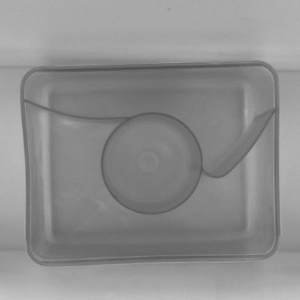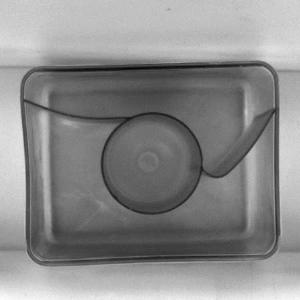You are here: Start » AVL.NET » AVL.NormalizeImage(AvlNet.Image, AvlNet.Region, float, float, float, float, AvlNet.Image, float, float, AvlNet.Region)
AVL.NormalizeImage(AvlNet.Image, AvlNet.Region, float, float, float, float, AvlNet.Image, float, float, AvlNet.Region)
Rescales an image linearly, so that its minimum becomes inNewMinimum and the maximum of the remaining pixels becomes inNewMaximum.
| Namespace: | AvlNet |
|---|---|
| Assembly: | AVL.NET.dll |
Syntax
public static void NormalizeImage( AvlNet.Image inImage, AvlNet.Region inRoi, float inNewMinimum, float inNewMaximum, float inSaturateBrightestFraction, float inSaturateDarkestFraction, out AvlNet.Image outImage, out float outA, out float outB, out AvlNet.Region diagLinearNormalizedRegion )
Parameters
- inImage
- Type: AvlNet.Image
Input image - inRoi
- Type: AvlNet.Region
Range of pixels to be processed, or null. - inNewMinimum
- Type: System.Single
Desired minimum value of the resulting image - inNewMaximum
- Type: System.Single
Desired maximum value of the resulting image - inSaturateBrightestFraction
- Type: System.Single
Fraction of the brightest pixels skipped during normalization - inSaturateDarkestFraction
- Type: System.Single
Fraction of the darkest pixels skipped during normalization - outImage
- Type: AvlNet.Image
Rescaled image - outA
- Type: System.Single
Multiplicative parameter of the applied linear transformation of pixel values - outB
- Type: System.Single
Additive parameter of the applied linear transformation of pixel values - diagLinearNormalizedRegion
- Type: AvlNet.Region
Region of image that has been linearly normalized
Description
This filter linearly scales the pixel values of an image in order to make the histogram span the desired range of values.
The operation computes the parameters \(A\), \(B\) of the linear transform that scales the image values to the desired range and applies the transform computing the results as follows:
\[ \begin{aligned} outImage[i,j] &= inImage[i,j] \times A + B \\ outA &= A \\ outB &= B \end{aligned} \]The inSaturateBrightestFraction and inSaturateDarkestFraction parameters can be used to make image normalization independent from salt and pepper noise. The normalization skips a chosen fraction of the brightest and the darkest pixels during counting \(A\) and \(B\). The brightest and darkest pixels are set to inNewMaximum and inNewMinimum respectively, while the rest of the image is linearly scaled. A region of the linear scaling is available on diagLinearNormalizedRegion diagnostic output. For example, setting inSaturateBrightestFraction to 0.01 causes skipping 1 percent of the brightest pixels during counting \(A\) and \(B\).
Examples
 |
 |
NormalizeImage run on example image.
Errors
| Error type | Description |
|---|---|
| DomainError | Empty image on NormalizeImage input. |
| DomainError | The sum of inSaturateBrightestFraction and inSaturateDarkestFraction can't be greater than 1. |


